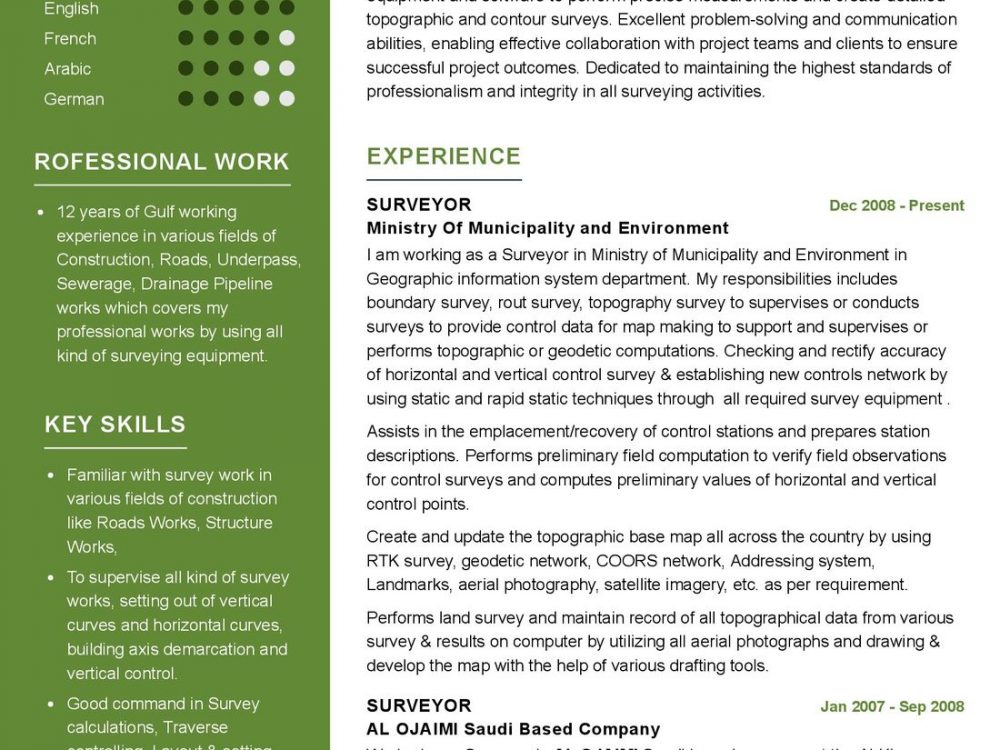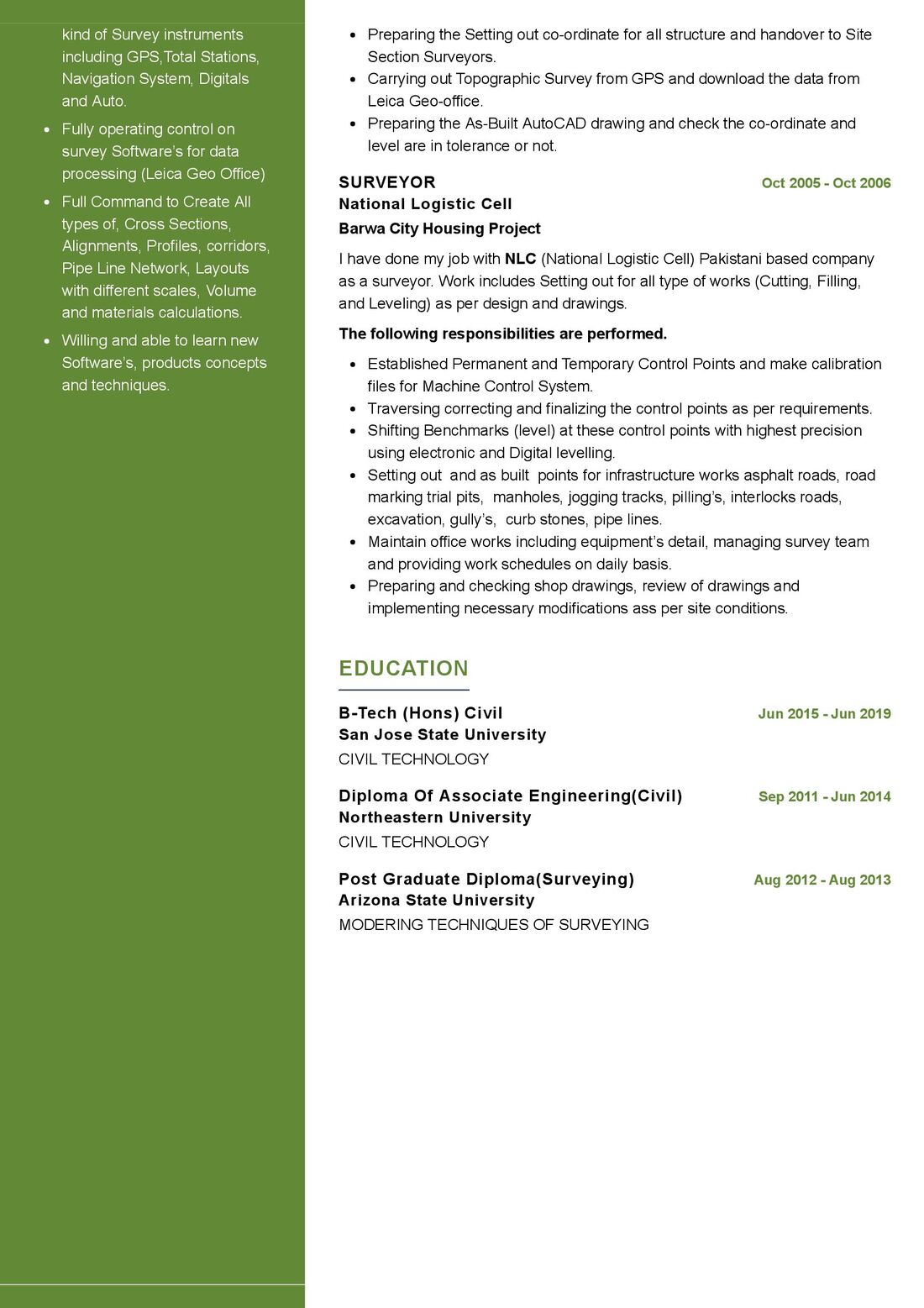What is the Role of a Surveyor?
Embarking on a career as a Surveyor means stepping into a role that is both dynamic and pivotal in the realms of construction, real estate, and environmental projects. Surveyors are the unsung heroes who ensure that land and property measurements are precise, facilitating smooth project executions. Let’s delve deeper into the role of a Surveyor, a profession that marries technical expertise with a keen eye for detail.
A Surveyor is responsible for measuring land, evaluating the design of a project from a geometric perspective, and ensuring that buildings are constructed correctly and safely. They work closely with architects, engineers, and stakeholders to provide the data necessary for successful project completion. Their role extends to advising on possible land use, considering environmental regulations and potential hazards. It is a role that demands precision, analytical thinking, and a deep understanding of mathematical concepts.
What are the Surveyor Job Requirements?
Aspiring to become a Surveyor involves meeting a series of requirements that ensure you are well-equipped to handle the intricacies of the job. Let’s explore the essential prerequisites for stepping into the role of a Surveyor:
- A Bachelor’s degree in surveying, geomatics, or a related field, laying a strong foundation in the necessary technical knowledge.
- License and certification from a recognized surveying board, a testimony to your expertise and adherence to the industry standards.
- Experience in using surveying instruments and software, showcasing your hands-on experience in the field.
- Strong mathematical and analytical skills, the backbone of a successful surveying career.
- Excellent communication skills, facilitating smooth collaboration with various stakeholders involved in a project.
- Physical stamina to work in various environments and terrains, a testament to your readiness to take on field challenges.
Acquiring additional certifications and engaging in continuous learning can further bolster your profile, setting you apart in the competitive job market.
What are the Responsibilities of a Surveyor?
The role of a Surveyor is a mosaic of varied responsibilities, each contributing to the successful completion of projects. Let’s delve into the core responsibilities that define this role:
- Conducting land and property surveys to establish legal boundaries.
- Collaborating with engineers and architects to provide essential data for project designs.
- Utilizing modern technology, including GPS and GIS systems, to conduct surveys accurately.
- Preparing reports and maps that detail the survey findings, a crucial document in project planning.
- Advising on land use and environmental regulations, a role that demands a deep understanding of legal frameworks.
- Inspecting projects to ensure adherence to design specifications and safety regulations.
Each responsibility is a building block, contributing to the creation of projects that stand tall, safe, and legally compliant.
Surveyor Resume Writing Tips
Creating a resume that resonates with potential employers is a crucial step in your job search journey. Here are some tips to help you craft a resume that effectively showcases your skills and experiences:
- Highlight your experience with modern surveying tools and technologies, showcasing your readiness to embrace the latest advancements in the field.
- Detail your involvement in significant projects, narrating the role you played and the impact it had on the project’s success.
- Include any certifications or courses undertaken, painting a picture of a professional committed to continuous learning.
- Personalize your resume for the specific role you are applying for, weaving a narrative that aligns with the job description.
Each tip is a stepping stone, guiding you towards crafting a resume that stands out in the competitive job market.
Surveyor Resume Summary Examples
Your resume summary is the gateway to your career narrative, offering a snapshot of your journey so far. Here are some examples to inspire you:
- “Experienced Surveyor with over 8 years in the field, skilled in utilizing modern surveying technologies to deliver precise results.”
- “Detail-oriented Surveyor with a strong background in land and property surveys, committed to ensuring project safety and compliance.”
- “Dedicated Surveyor with a proven track record in collaborative project execution, bringing a wealth of expertise in GIS systems.”
Each summary offers a glimpse into your professional journey, setting the stage for the detailed narrative that follows.
Create a Strong Experience Section for Your Surveyor Resume
The experience section is the heart of your resume, a space where you narrate your professional journey with rich details. Here are some tips to help you craft this section effectively:
Each detail adds depth to your narrative, offering a comprehensive view of your career journey.
Sample Education Section for Your Surveyor Resume
Your educational background is the foundation upon which your career is built. Here is a sample section that showcases how to detail your educational journey:
- B.Sc. in Geomatics, XYZ University, 2015
- Certified Surveyor, ABC Surveying Board, 2017
Each educational milestone is a testament to your readiness to excel in the surveying field.
Surveyor Skills for Your Resume
Your skill set is a rich tapestry of abilities that you bring to your role as a Surveyor. Let’s explore the skills that should find a place in your resume:
Soft Skills:
- Attention to detail
- Collaborative mindset
- Problem-solving abilities
- Excellent communication
- Adaptability
Hard Skills:
- Proficiency in GIS and GPS systems
- Understanding of land use regulations
- Expertise in mathematical concepts
- Experience with surveying tools and software
- Project management skills
Each skill is a testament to your readiness to excel in the surveying field, showcasing your preparedness to take on the challenges that come your way.
Most Common Mistakes to Avoid When Writing a Surveyor Resume
As you craft your resume, it is essential to steer clear of common pitfalls that can hinder your journey to landing your dream job. Here we list down the mistakes often seen in resumes and how to avoid them:
- Using a one-size-fits-all approach, a strategy that fails to showcase your unique fit for the role.
- Listing job duties without showcasing your achievements, a narrative that lacks depth.
- Ignoring the cover letter, a missed opportunity to narrate your story and connect with the potential employer.
- Overloading your resume with technical jargon, a strategy that can obscure your true value.
- Failing to proofread, a mistake that can leave a dent in your professional image.
Each mistake is a pitfall, avoid them to craft a resume that is both authentic and compelling.
Key Takeaways for Your Surveyor Resume
As we reach the end of this comprehensive guide, let’s recap the key points to keep in mind while crafting your Surveyor resume:
- Detail your educational background, showcasing the strong foundation that supports your career.
- Highlight your experience with modern surveying tools and technologies, painting a picture of a technically adept professional.
- Include personal anecdotes or insights, offering a glimpse into your journey and the lessons learned along the way.
- Present a well-rounded view of your skill set, showcasing both technical expertise and soft skills that make you a valuable team player.
Finally, feel free to utilize resources like AI Resume Builder, Resume Design, Resume Samples, Resume Examples, Resume Skills, Resume Help, Resume Synonyms, and Job Responsibilities to create a standout application and prepare for the Surveyor job interview.
With this guide at your disposal, you are well-equipped to craft a resume that not only tells your professional story but does so with a depth that showcases the unique blend of skills and experiences you bring to the table. Remember, your resume is the first step in showcasing the value you can add to a potential employer, so make it count. Good luck!



